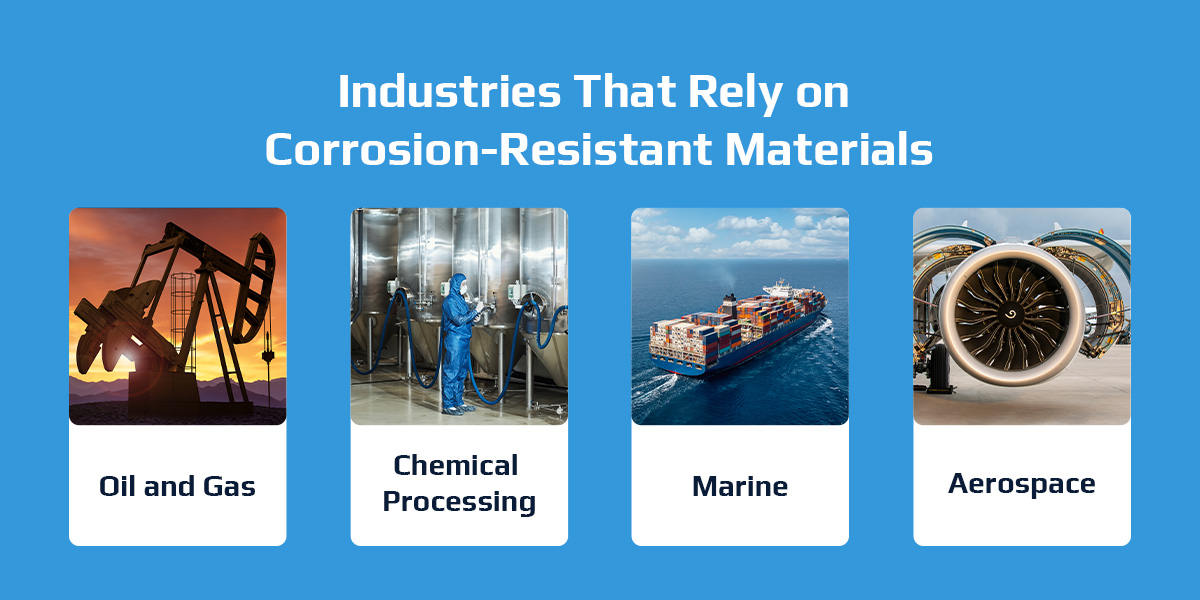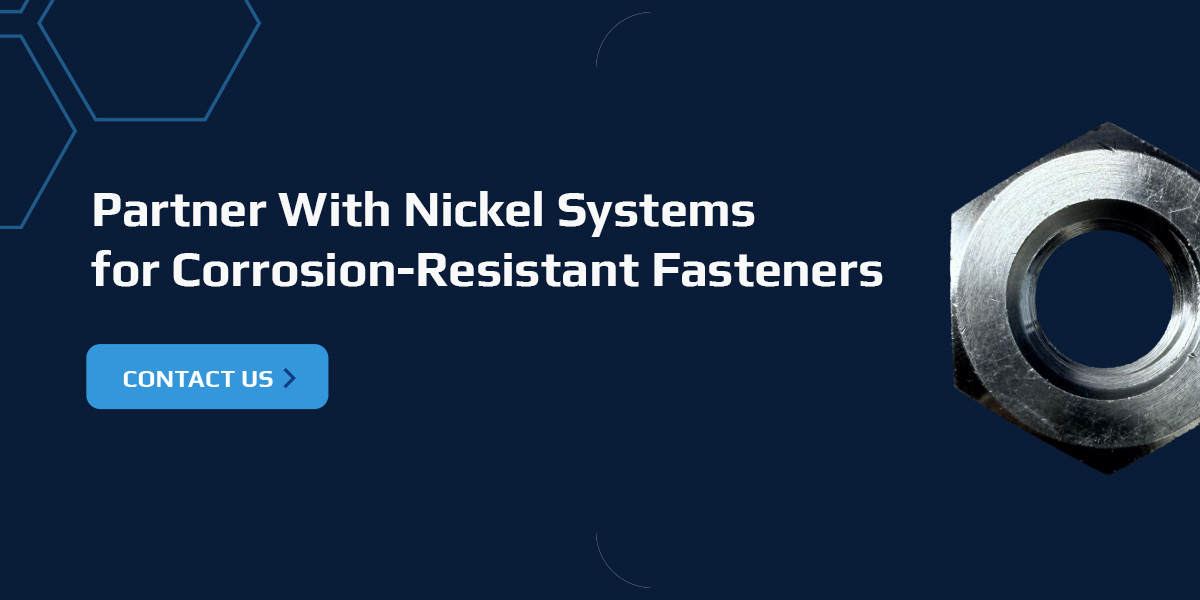
When equipment fails prematurely or production halts due to material degradation, the culprit is often corrosion. If a single corroded bolt gives way in a chemical reactor or a degraded fastener causes a pipeline leak, the consequences ripple through the entire operation.
Smart material selection transforms this challenge into a competitive advantage. Corrosion-resistant materials, particularly high nickel alloys and specialty stainless steels, protect your investment, safeguard your team and keep production running smoothly.
Corrosion-resistant materials possess unique metallurgical properties that enable them to withstand chemical attack, oxidation and environmental degradation. Unlike standard steel, which rusts when exposed to moisture, these engineered alloys protect themselves. They contain balanced elements that form protective oxide layers, resist chemical reactions or maintain structural integrity under harsh conditions.
Corrosion-resistant materials in industrial applications are crucial for longevity, withstanding conditions that would destroy standard materials. The benefits of corrosion-resistant alloys include:

Every industry faces unique challenges. From sour gas in oil fields to ultrapure chemicals in semiconductor fabs, selecting the right material determines whether equipment operates reliably or requires constant repair. Understanding how different sectors apply these materials helps identify solutions for your needs.
Corrosion resistance in oil and gas applications is crucial, as deepwater platforms operate miles offshore. Petroleum operations experience every corrosion challenge imaginable:
High nickel alloys, like Inconel 625 and Monel K-500, and specialty stainless steels meet these challenges in subsea equipment, wellhead components and pipeline systems. These materials maintain integrity in conditions that would destroy the standard alloy.
Chemical plants manage controlled chaos daily, and any material weakness creates a potential disaster. Concentrated acids flow through one line while caustic solutions run through the next. Temperatures soar during reactions and plunge during cooling, while pressures vary from vacuum to extreme positive values.
High-temperature corrosion-resistant metals like those in the Hastelloy family enable these facilities to safely process aggressive chemicals while maintaining production efficiency. Their versatility allows standardization across multiple process streams, simplifying inventory management and maintenance procedures.
Seawater is a persistent erosive agent that leads to general corrosion, pitting, crevice corrosion and stress corrosion cracking. Add in marine organisms, temperature variations and mechanical stress, and you have one of nature’s most challenging environments.
Marine corrosion-resistant materials like Monel 400 and Super Duplex 2507 excel in continuous seawater exposure. Ship builders, offshore platform constructors and port facility engineers specify these materials for critical fastening applications. A corroded bolt below the waterline requires dry docking to replace. Selecting the right material initially prevents these expensive interruptions.
Aerospace applications demand materials that perform reliably under extreme conditions. Jet engines generate temperatures that would melt standard alloy, while pressure cycles stress every component. Weight restrictions also demand maximum strength from minimum material.
Corrosion-resistant materials like Incoloy® 825 and Hastelloy X570 secure turbine components where failure means catastrophe. Titanium alloys are also commonly used in airframe applications, as they provide strength without a weight penalty.
Buildings and infrastructure experience environmental factors like acid rain, road salt, industrial pollution and weather cycles that attack exposed fasteners. Failed connections compromise structural integrity and public safety.
Specialty stainless steels like 2205 provide affordable corrosion resistance for architectural and structural applications. These materials maintain appearance and strength throughout the structure’s design life, so bridge builders, architects and engineers choose these alloys to ensure their projects stand firm.
Material selection requires balancing multiple factors to find your optimal solution.
Consulting experienced suppliers and distributors streamlines the selection process. Material experts understand which alloys excel in specific applications and can guide you toward cost-effective solutions that meet all technical requirements.
Corrosion-resistant materials transform potential failure points into reliable assets. These specialized alloys protect critical equipment across thousands of facilities worldwide. They prevent disaster, reduce costs and enable operations in otherwise impossible conditions.
Finding the right corrosion-resistant fastener ensures equipment reliability. Nickel Systems has built a reputation as the largest stocking distributor of corrosion-resistant fasteners made of high-nickel alloys and specialty stainless steels. Our knowledgeable team provides personalized consulting backed by decades of experience helping customers solve their toughest corrosion challenges.
With zero lead time on stocked items and quick turnaround on custom orders, we help make sure your operations never halt because of missing critical fasteners. Contact us today for a free quote.
